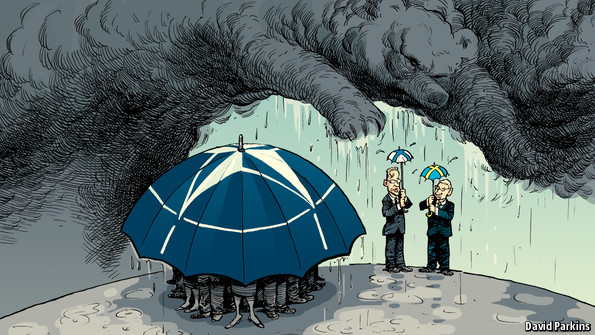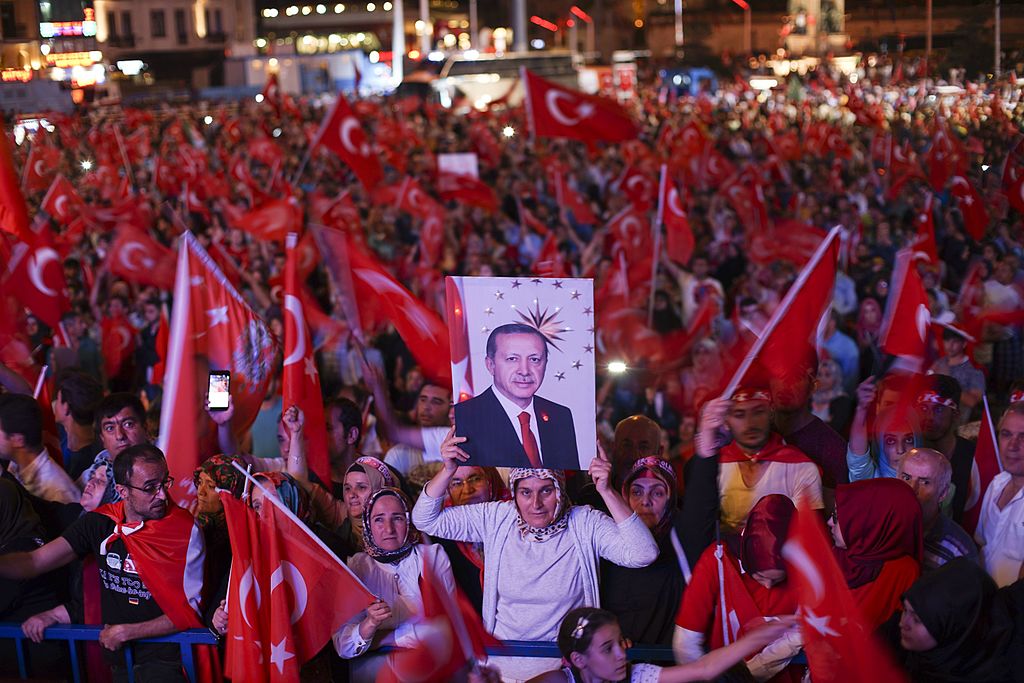In light of ongoing hostilities between the West and Russia, many European states have had some experience with Russian aggression. This has proven to be an enormous challenge for most of them as the size and strength of the Russian military easily dwarfs theirs. Sweden, a non-aligned Nordic state, is no exception. Russia’s ad-hoc policy towards Sweden has been demonstrated by a series of intrusions into Swedish territory. Furthermore, Russia has revealed designs on the island of Gotland, one of Sweden’s key strategic points in the Baltic Sea. Sweden may be forced to seek NATO’s assistance as its military strength has been dwindling for years. There may soon be a turning point in Swedish history where Sweden revises its policy of neutrality.
Sweden is known for its long tradition of neutrality. In the aftermath of the Napoleonic Wars, Sweden’s foreign policy was focused on non-provocation toward Russia and relying on Western European powers to balance Russian power. Since the 19th century, Sweden has maintained its neutrality through two World Wars. During the Cold War, Sweden’s formidable military strength, comprised over 800,000 strong and it had a well-equipped navy and air force which was substantial for preserving neutrality in the fierce rivalry between the United States and the Soviet Union.
The situation is much different today as Sweden possesses an armed force of just 50,000. In recent years, Sweden has encountered numerous Russian provocations. Russian aircrafts and submarines have been regularly intruding in Swedish territory. Swedish authorities have expressed their concerns about Russia’s behaviour. In October 2014, two Russian SU-24M fighter-bombers flew one kilometre inside Swedish airspace which prompted a strong condemnation. Foreign Minister Carl Bildt criticized Russian provocation as “the most serious aerial incursion by the Russians during my years as foreign minister.”
Sweden fears Russia may seek to occupy Gotland, Sweden’s largest island located about 50 miles from the Swedish mainland, in the near future. Experts have suggested a few possible scenarios of Russian aggression in the Baltics, including the Russian occupation of Gotland. One scenario suggests there may be a suspicious group of Islamic fundamentalists launching an attack on Sweden, and Russian forces would land in Gotland. Russia may justify the occupation by claiming that it is acting only in goodwill by responding to a “request for help” from the locals.
Journalist Elisabeth Braw has expressed her concern about Gotland’s being ill-guarded for years. Taking Gotland Island would give a huge strategical advantage to Russia because Estonia, Latvia and Lithuania would lose their access to the Baltic Sea. Occupying Gotland would be an easy task for the Russian military. The island which once housed an armored brigade, now only houses a Home Guard battalion of just 300. Without an air defense system and a sizeable number of well-equipped troops Braw fears that Gotland will become easy prey. If the island is occupied, it will be transformed into a key Russian stronghold that could effectively prevent a NATO aerial and naval mission in the Baltic Sea.
 At present, it is uncertain whether Sweden would pursue becoming a full NATO member in the near future. But what is certain is that Sweden continues to face insurmountable challenges in defending its territory. Its air force and navy lack the capability to repel Russian offensives as the years of peace has dulled Sweden’s combat readiness. When two Russian bombers flew over an uninhabited Swedish island on Good Friday in 2013, Swedish air forces could not scramble any planes because most of the crews were on leave.
At present, it is uncertain whether Sweden would pursue becoming a full NATO member in the near future. But what is certain is that Sweden continues to face insurmountable challenges in defending its territory. Its air force and navy lack the capability to repel Russian offensives as the years of peace has dulled Sweden’s combat readiness. When two Russian bombers flew over an uninhabited Swedish island on Good Friday in 2013, Swedish air forces could not scramble any planes because most of the crews were on leave.
Sweden’s pivot to NATO will certainly infuriate the Russian government. Earlier this month, Viktor Tatarintsev, Russian ambassador to Sweden, made a blunt statement, claiming that Russia will take “countermeasures” if Sweden ever joins NATO. At this point, it is undeniable that the “Swedish neutrality” has become meaningless by a series of Russian provocations in recent years. Escalating the situation further, Russia has hinted at its willingness to seize Swedish territory in case of a Western-backed uprising in Moscow. A Russian military training exercise in March was held with a scenario in which the Russian military responds to a Western backed uprising by launching an assault on Gotland, Norway, Denmark, and Finland.
Sweden has every right reason to overhaul its military and revise the policy of neutrality. Seeking assistance from and even a membership in NATO would be essential as the Swedish military has been in disarray for years. Sweden must acknowledge that maintaining neutrality would not be a solid guarantee of peace and prosperity in the coming years, just as neutrality did not save its Nordic neighbours, Denmark, and Norway, from Nazi occupation during World War II.







